June 01, 2022
Malawi has a high burden of infectious diseases, most of which come in the form of HIV, malaria, and tuberculosis. Laboratory tests are essential to treating Malawians for these diseases. Malawi has, however, had gaps in laboratory certification, and the efficiency, capacity, and quality of laboratory services has proved challenging—an especially problematic development in light of the COVID-19 pandemic. Ciheb Malawi, through the Accelerating Malawi’s PEPFAR Laboratory Logistics and Infrastructure for Quality (AMPLIFY) program, sought to improve laboratory services.
To expand access to COVID-19 testing to rural and hard-to-reach areas, the Ministry of Health (MOH) in Malawi decentralized testing from laboratories using conventional molecular platforms. The University of Maryland, Baltimore (UMB) – Ciheb Malawi AMPLIFY program trained laboratory personnel in peripheral facilities in using rapid antigen testing that can be performed by non-laboratory staff. The MOH started using COVID-19 rapid antigen testing in November 2021 and has continued expanding this service to new testing sites.
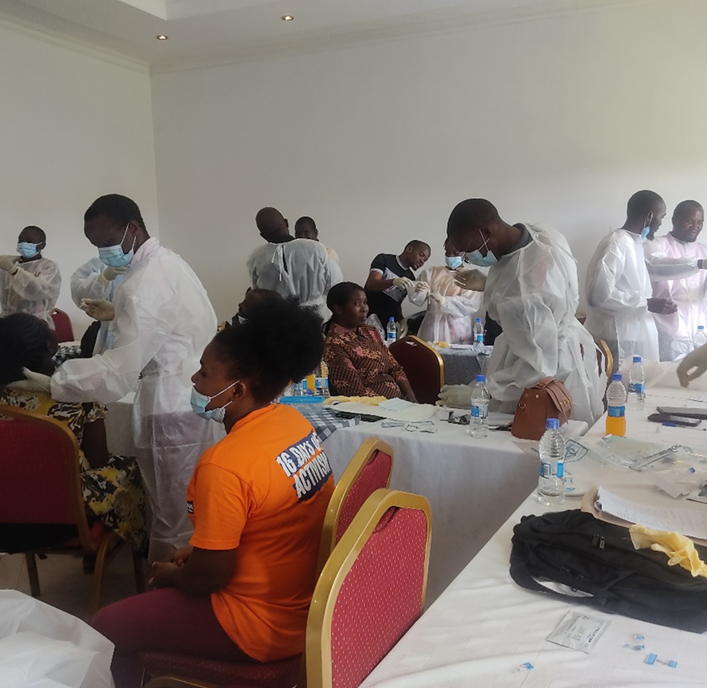
Participants in practical sessions
So far, 520 sites have been trained, and UMB staff are currently conducting COVID-19 rapid antigen testing. UMB – Ciheb Malawi AMPLIFY program supported the MOH in training 39 rural health facilities (in Nkhata-bay [26] and Chiradzulu [13] districts) in COVID-19 rapid antigen testing between January 2022 and March 2022. A total of 119 non-laboratory personnel were trained. Trainings, delivered through presentations and practicals, have covered COVID-19 testing options, quality assurance, sample collection, antigen testing guidelines, data management, diagnostic supply management, testing workflow, safety, and infection prevention and control. UMB plans to cover at least five more districts and train at least 180 more MOH staff.
With trained staff now providing COVID-19 and infectious disease testing for the people of Malawi, more people will now have access to testing that meets international standards. This, in turn, will help diagnosis and treatment efficiency improve for Malawians.
Contact
Center for International Health, Education, and Biosecurity
Institute of Human Virology
Tyler New
Scientific Writer
tnew@ihv.umaryland.edu
Related stories
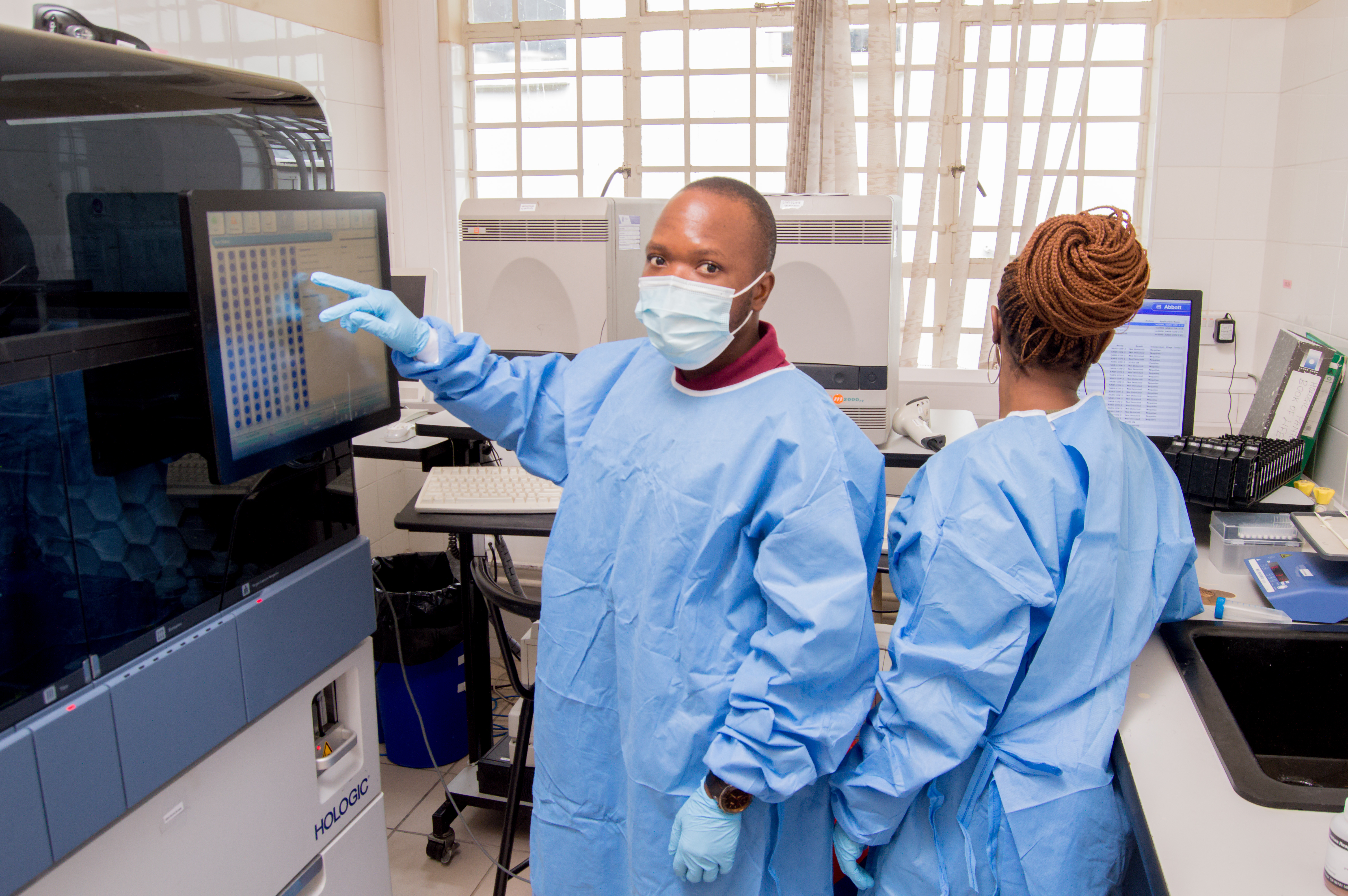
Friday, July 14, 2023
Addressing Unprocessed HIV Viral Load Samples Backlog in Malawi
The health sector in Malawi was faced with a pressing backlog issue of unprocessed HIV viral load samples. These had accumulated due to reagent stockouts and persistent power outages in the country.
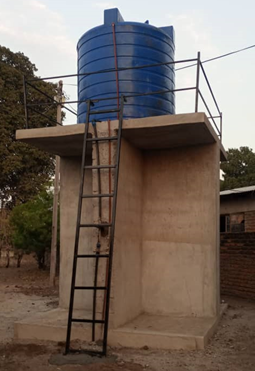
Friday, December 09, 2022
Ciheb Malawi Donates Equipment to Districts
University of Maryland Baltimore's (UMB) Ciheb Malawi recently donated water tanks, solar batteries, and computers to districts in Malawi for lab improvement. Laboratories are crucial to timely and quality health services not only for those living with HIV but also prevention of HIV infection. It is essential to ensure that laboratories and laboratory staff are well-equipped and well-trained to deliver services.
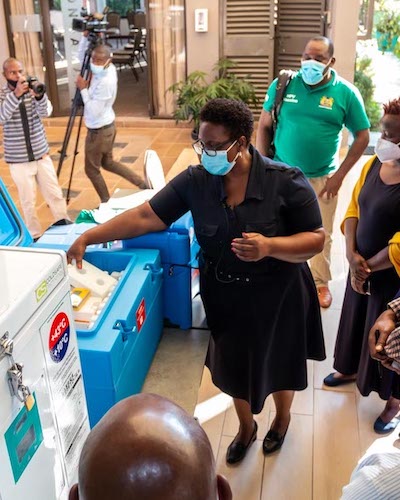
Wednesday, December 08, 2021
Supporting the Rollout of the COVID-19 Vaccine in Kenya
To combat the spread of COVID-19 in Kenya, Ciheb’s local partner, Ciheb-Kenya, received a five-year CDC-funded grant to support national and county activities towards rolling out COVID-19 vaccination. The Technical Assistance to Ready and Accelerate Capacity of public health programs in Kenya (TRACK) program is focused on supporting the development of national policies and training material on COVID-19 vaccination and teaching national trainers to cascade this training to counties.
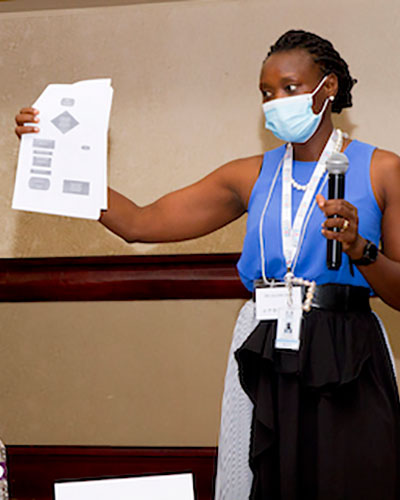
Saturday, September 25, 2021
COVID-19 Team Helps Steer BAIS V Survey Through Field Implementation in Botswana
At the resumption of the fifth Botswana HIV/AIDS Impact Survey (BAIS V), the project convened a small group of three to lead the COVID-19 response. Over the following months, this trio would lead a herculean effort to safeguard the health of staff and participants and allow the survey to proceed as safely as possible.
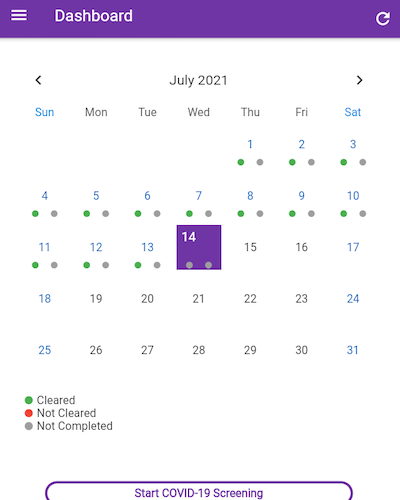
Tuesday, September 07, 2021
COVID-19 Symptoms Monitoring App Supports PHIA Surveys
Working in partnership with national ministries of health, Ciheb has helped conduct population-based HIV impact assessments (PHIAs) in countries supported by PEPFAR. These surveys provide critical information about the status of HIV/AIDS by estimating HIV prevalence, or the total number of people living with HIV (PLHIV) in a country.
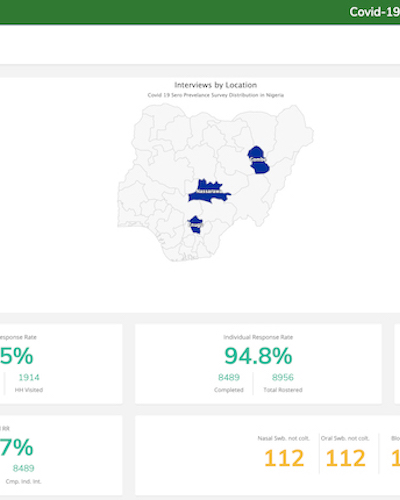
Sunday, September 05, 2021
Dashboards to Support Nigeria COVID-19 Serosurveillance Study
In the fall of 2020, Ciheb conducted the first phase of a COVID-19 population-based serosurveillance study (COVID-19 Household Seroprevalance Survey) in the Nigerian states of Enugu, Nasarawa, and Gombe to assess the prevalence of COVID-19 in the country.
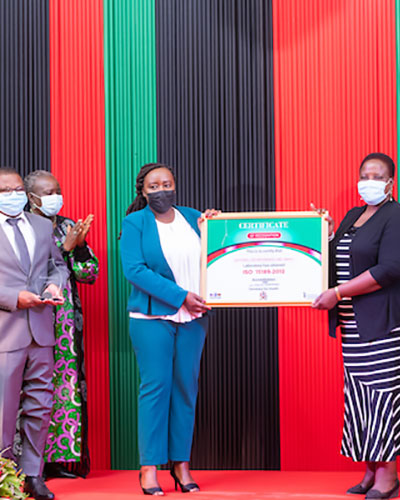
Wednesday, June 30, 2021
Malawi Celebrates ISO 15189 Accreditation of Laboratories
The University of Maryland, Baltimore through Ciheb, in conjunction with the Malawi Ministry of Health and other partners, held an awards ceremony to celebrate the ISO 15189:2012 medical laboratory accreditation of six facilities in Malawi, four of which were supported by Ciheb.
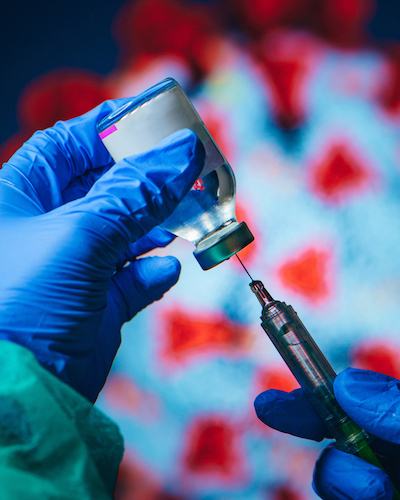
Monday, May 24, 2021
Ciheb-Kenya on the Front Lines of the COVID-19 Vaccine Rollout
Ciheb-Kenya, our local Kenyan partner, has been working with the U.S. Centers for Disease Control and Prevention, the Kenya Ministry of Health, and the National Vaccines and Immunization Programme (NVIP) to support COVID-19 vaccine preparedness through the ongoing Technical Assistance to Ready and Accelerate Capacities of Public Health Programs in Kenya (TRACK) project. Kenya received its first shipment of vaccines several weeks ago and has been moving ahead quickly. As of April 21, a total of 721,509 persons have been vaccinated against COVID-19 countrywide.

